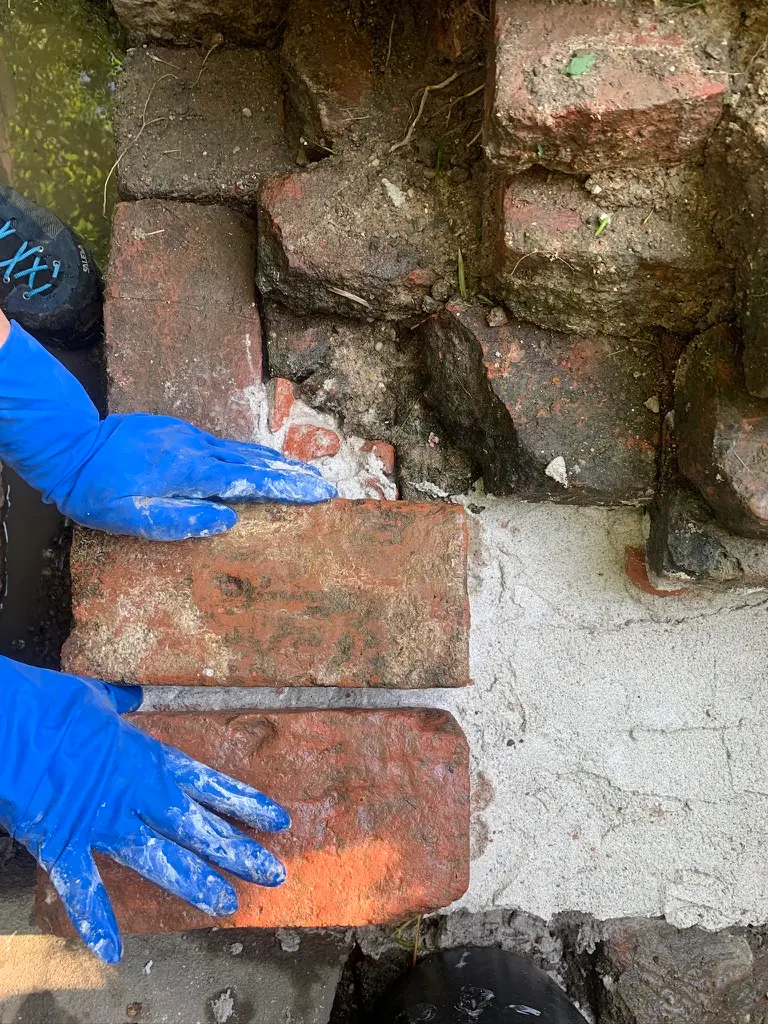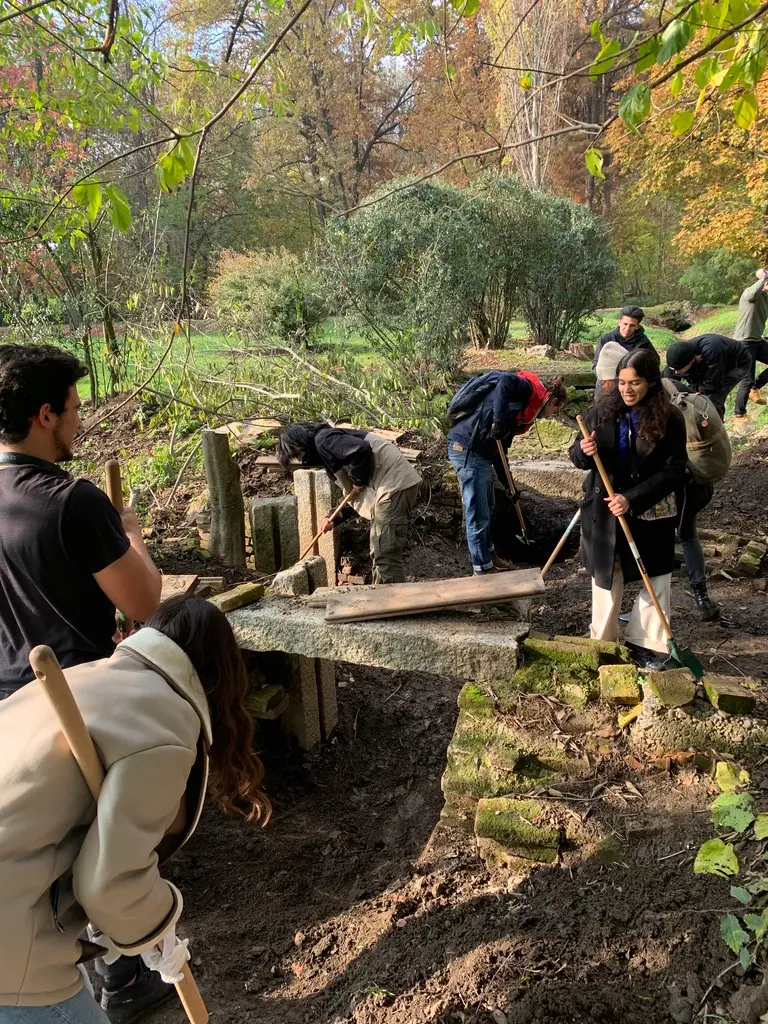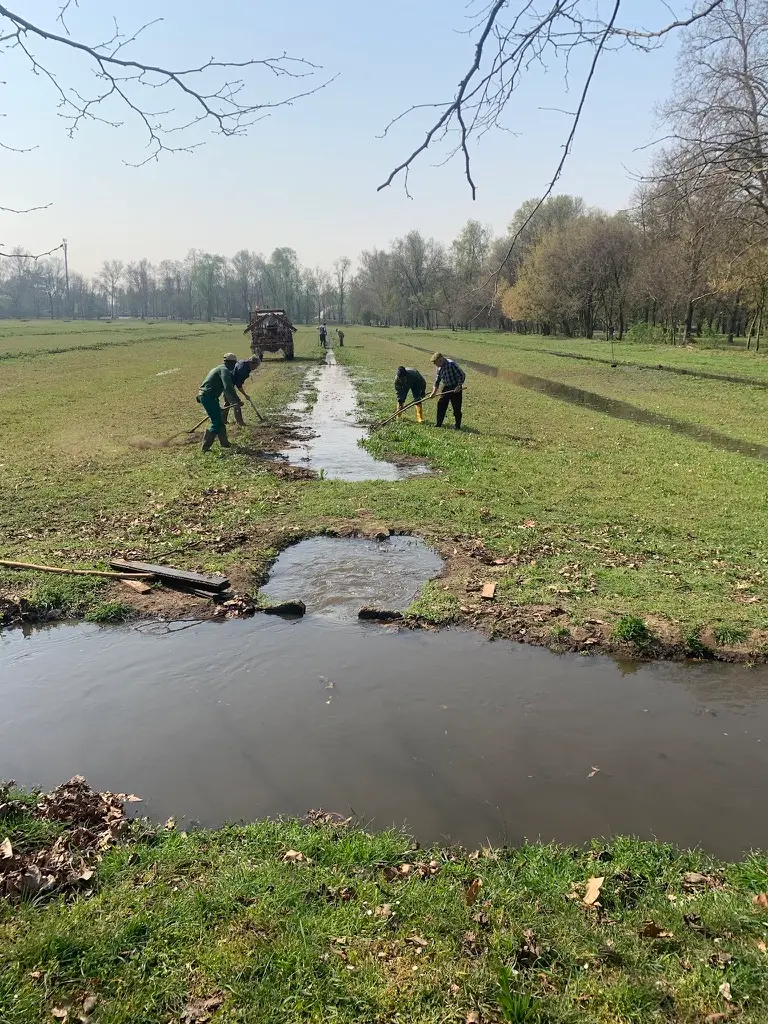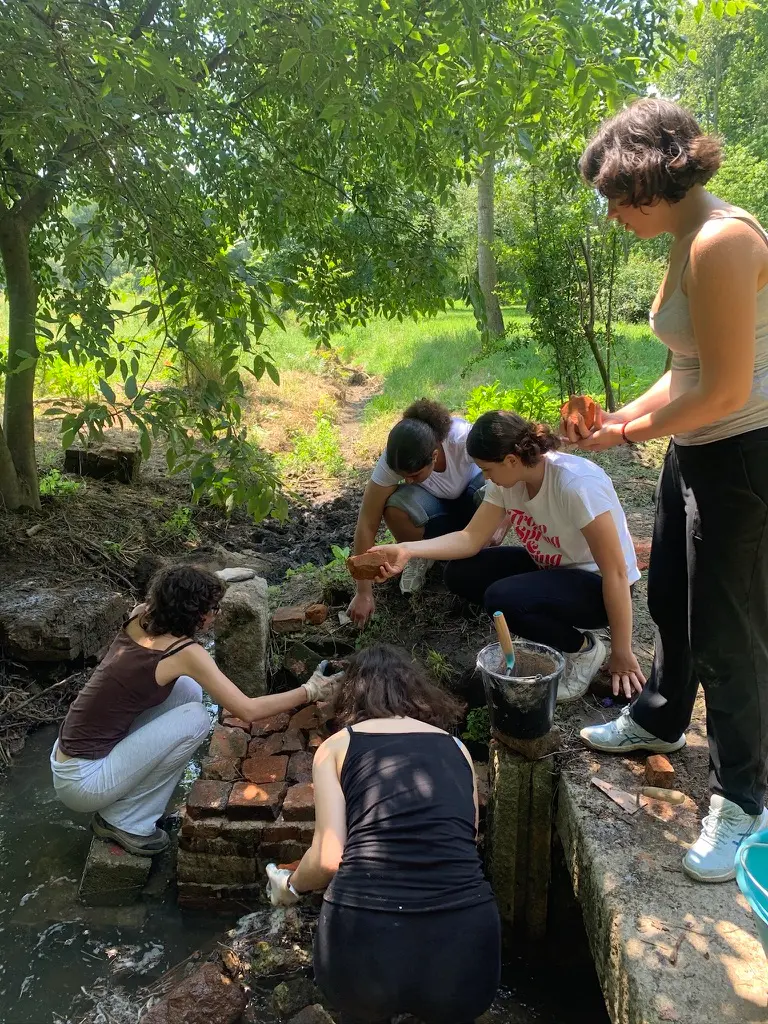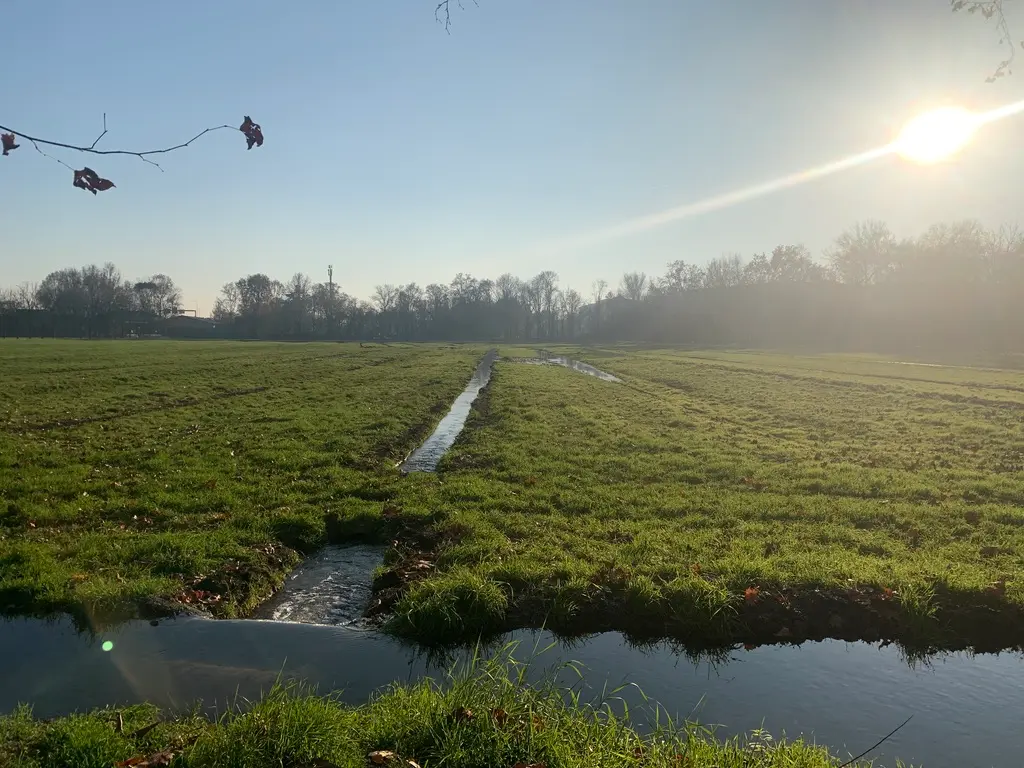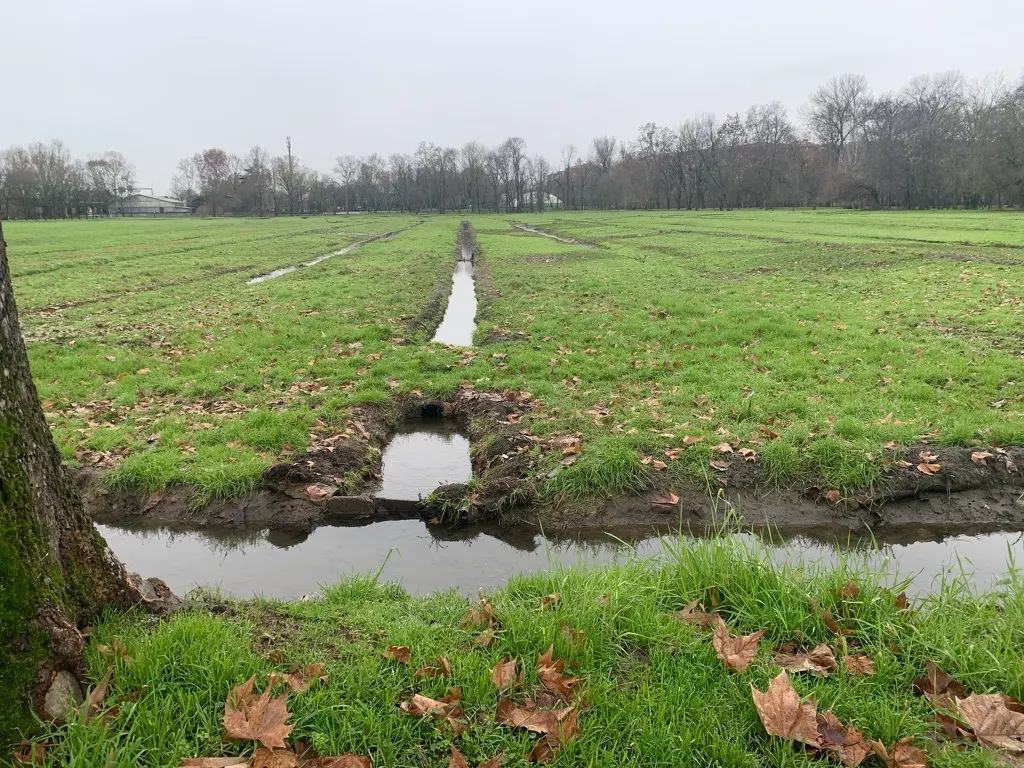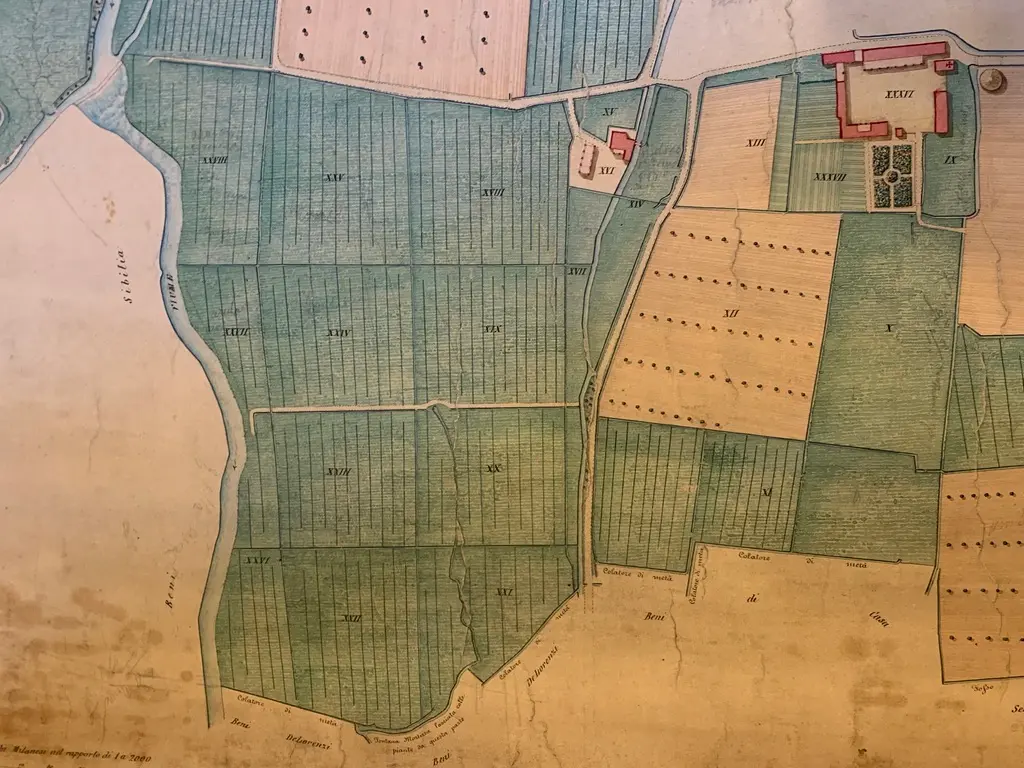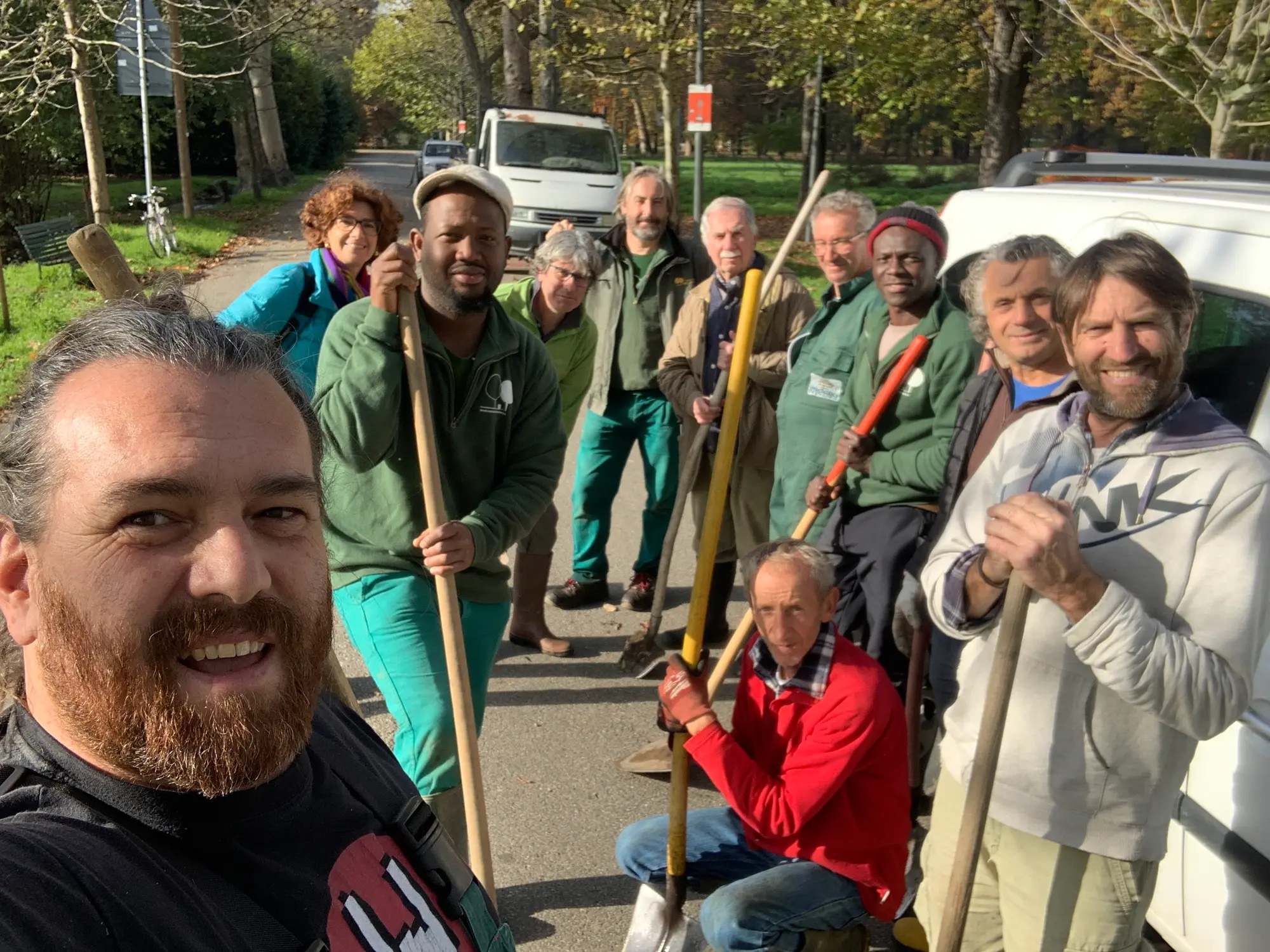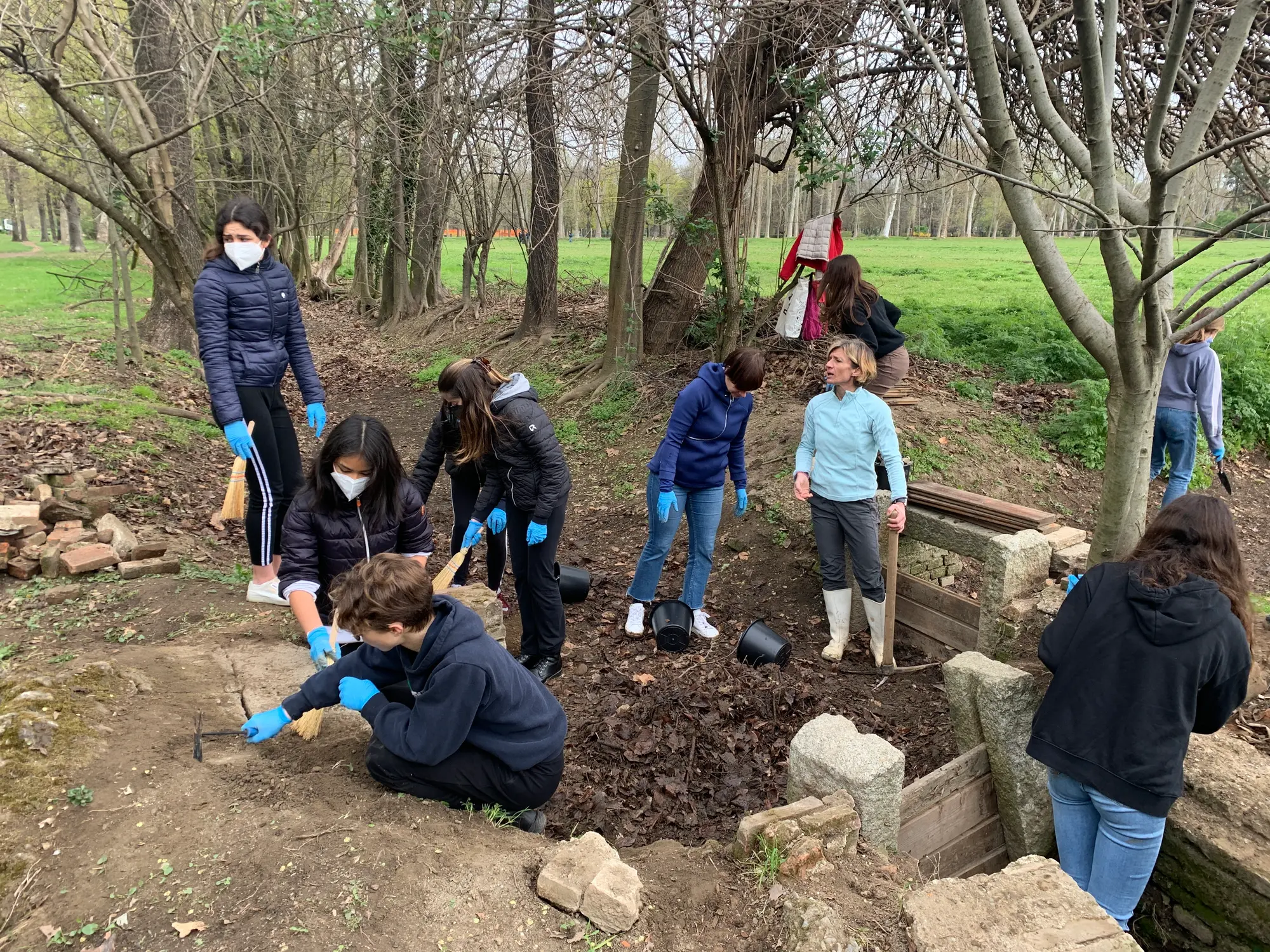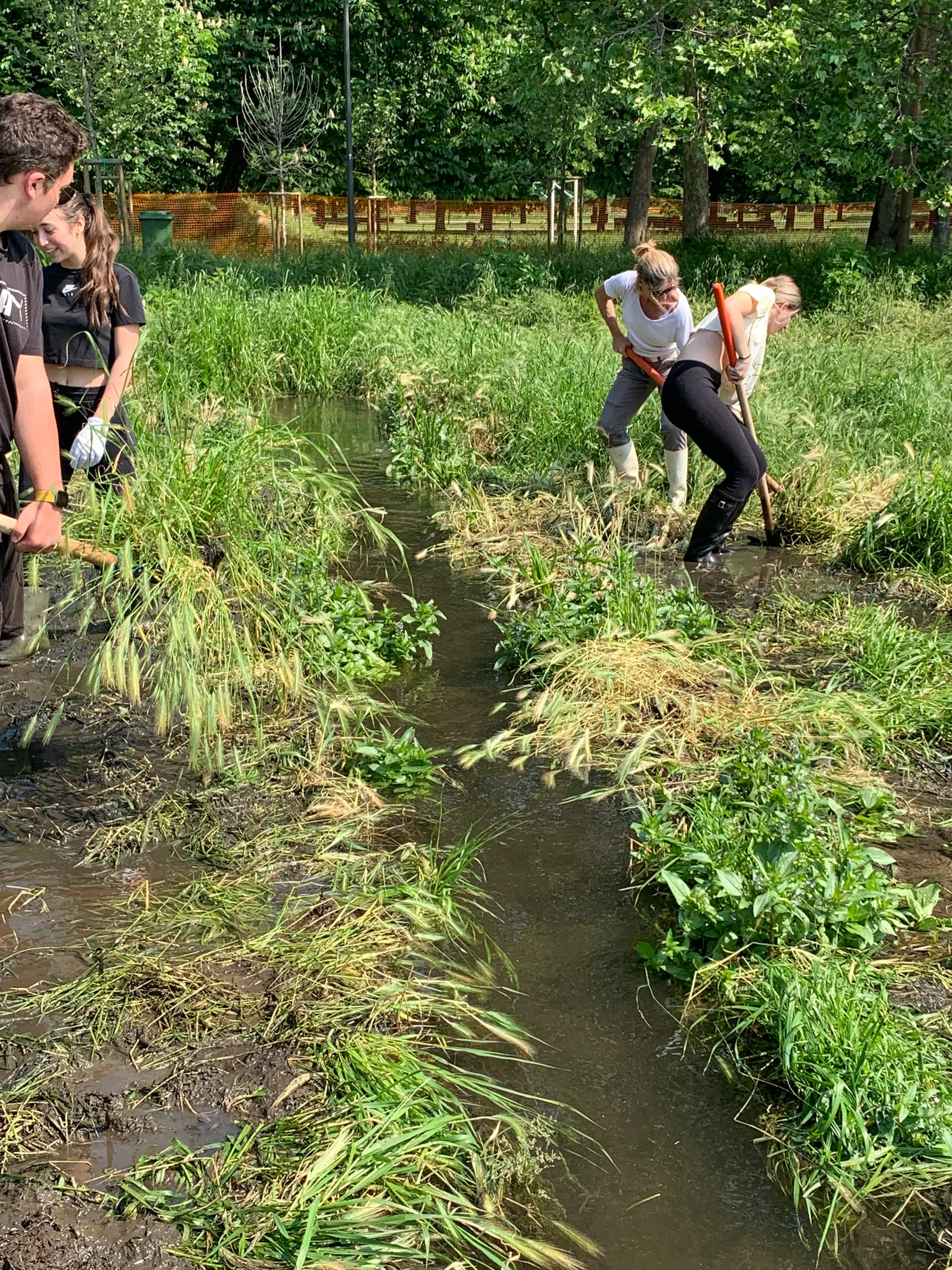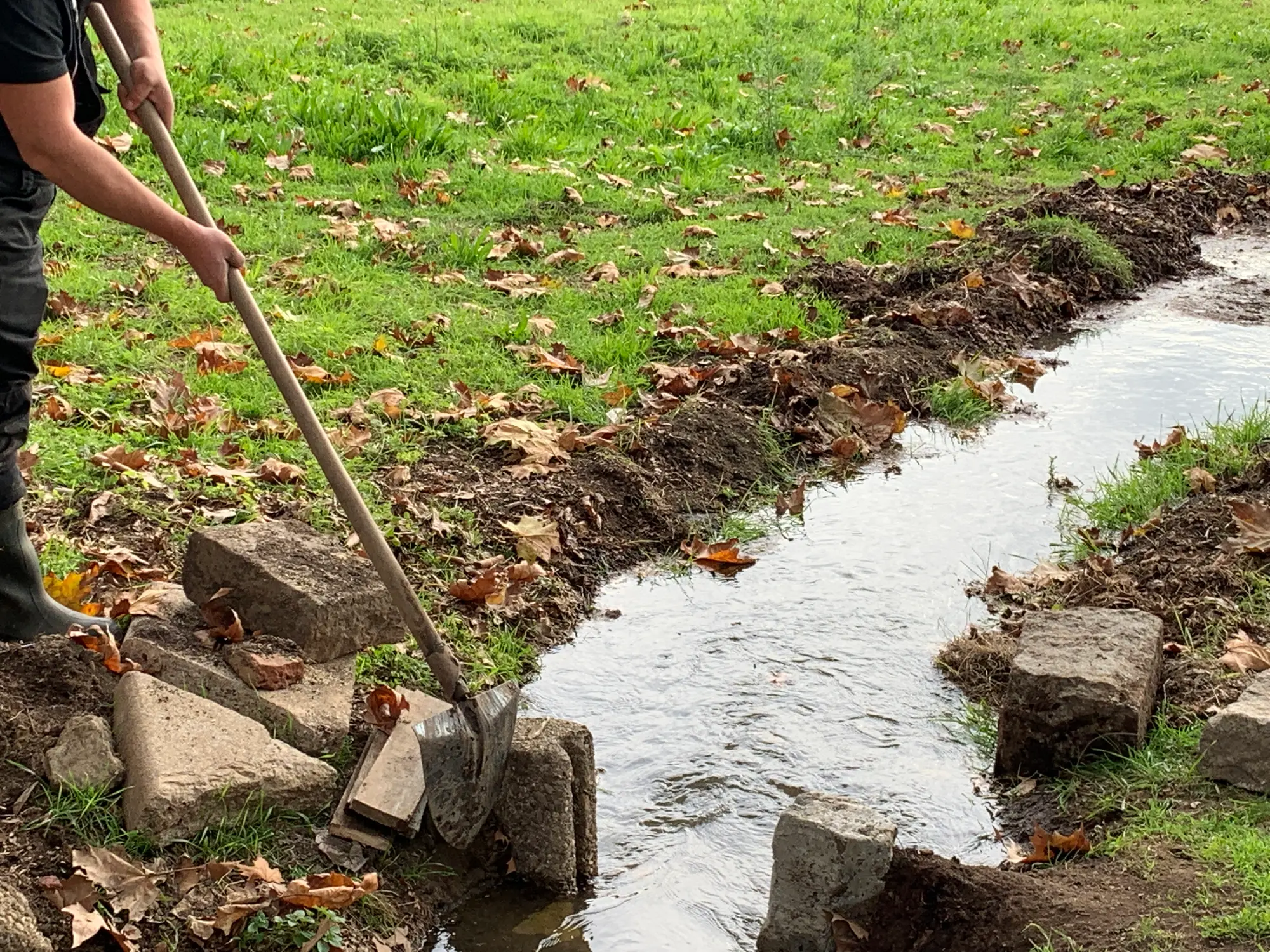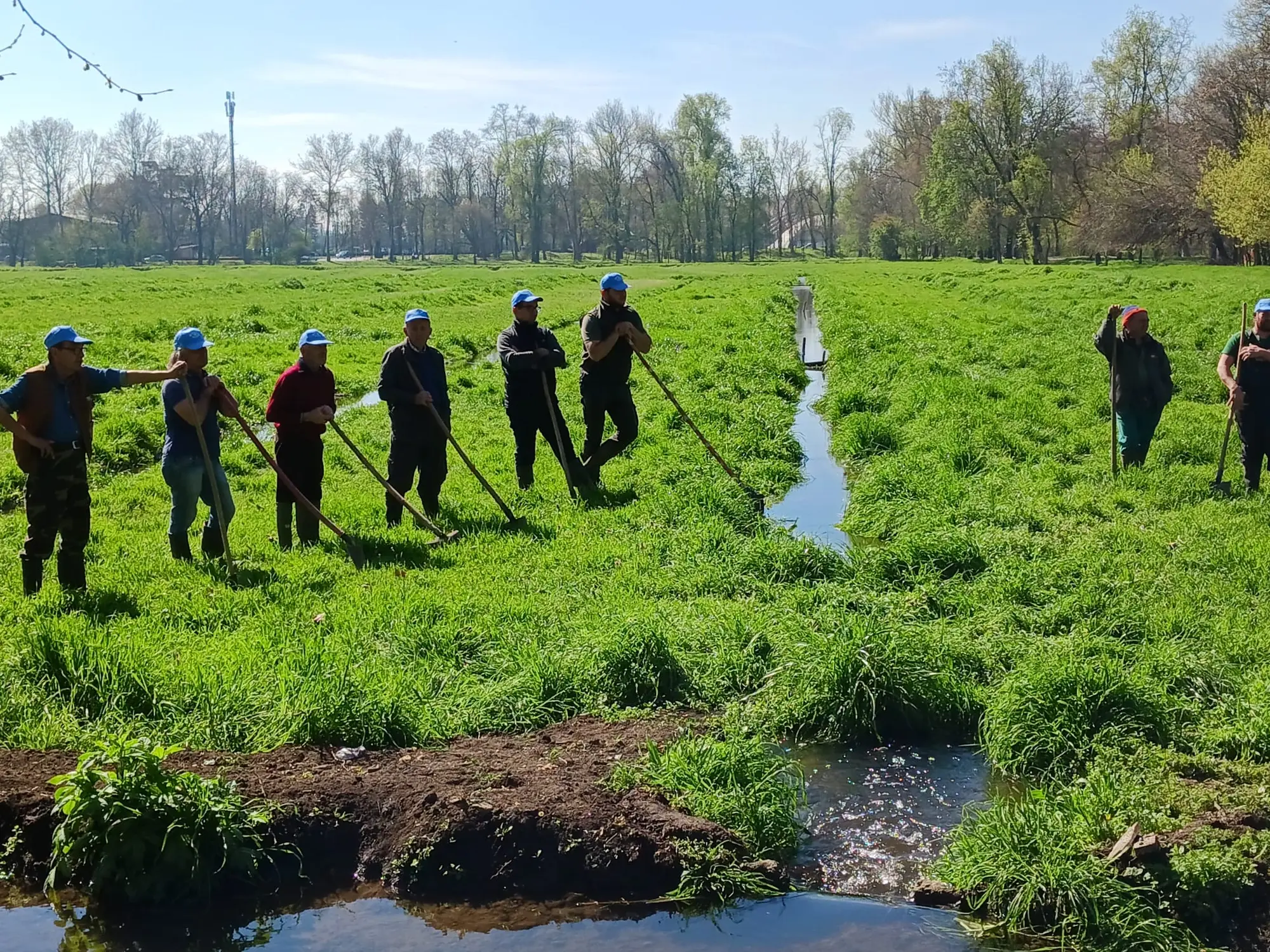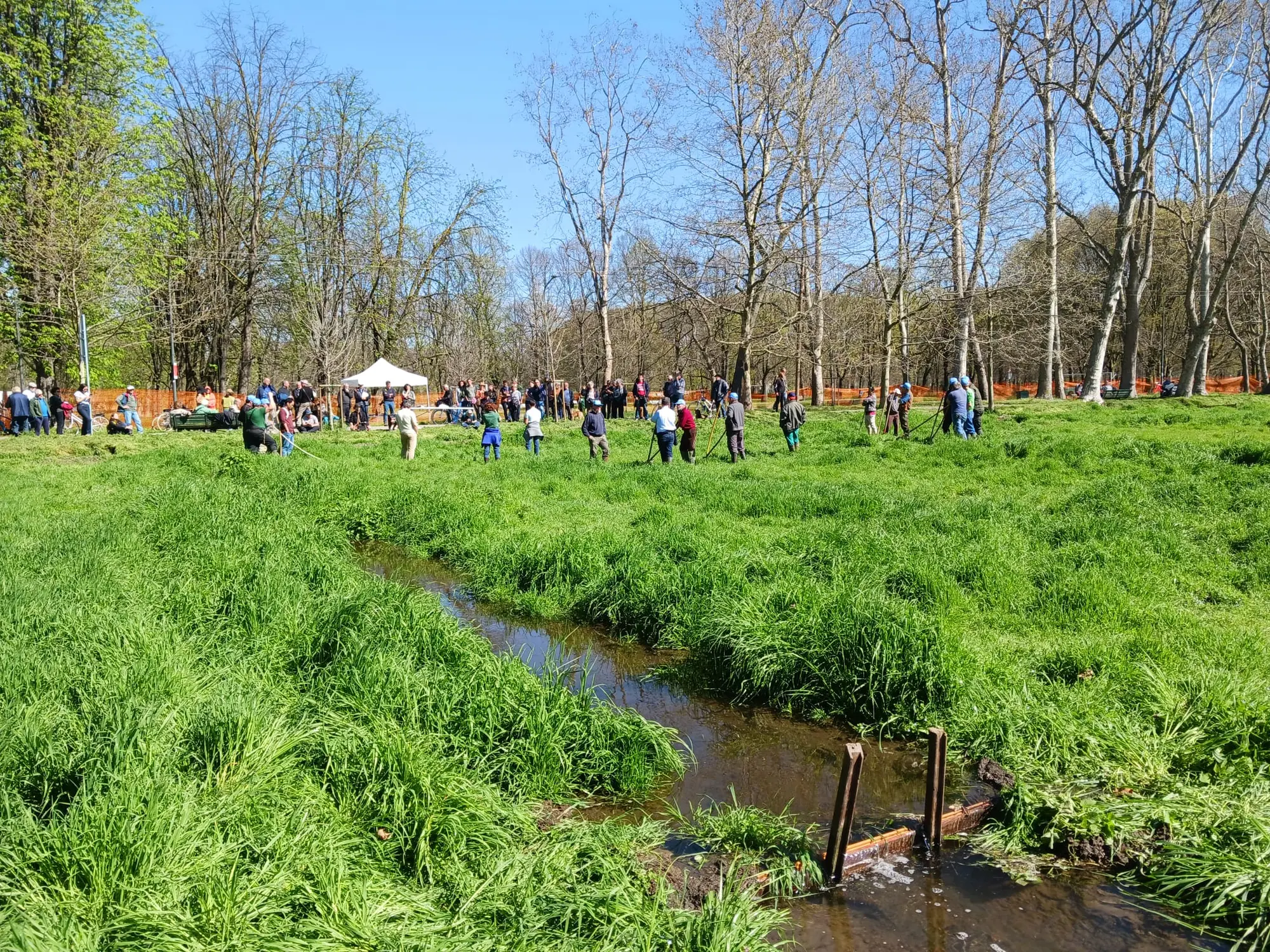Grangia di San Gregorio
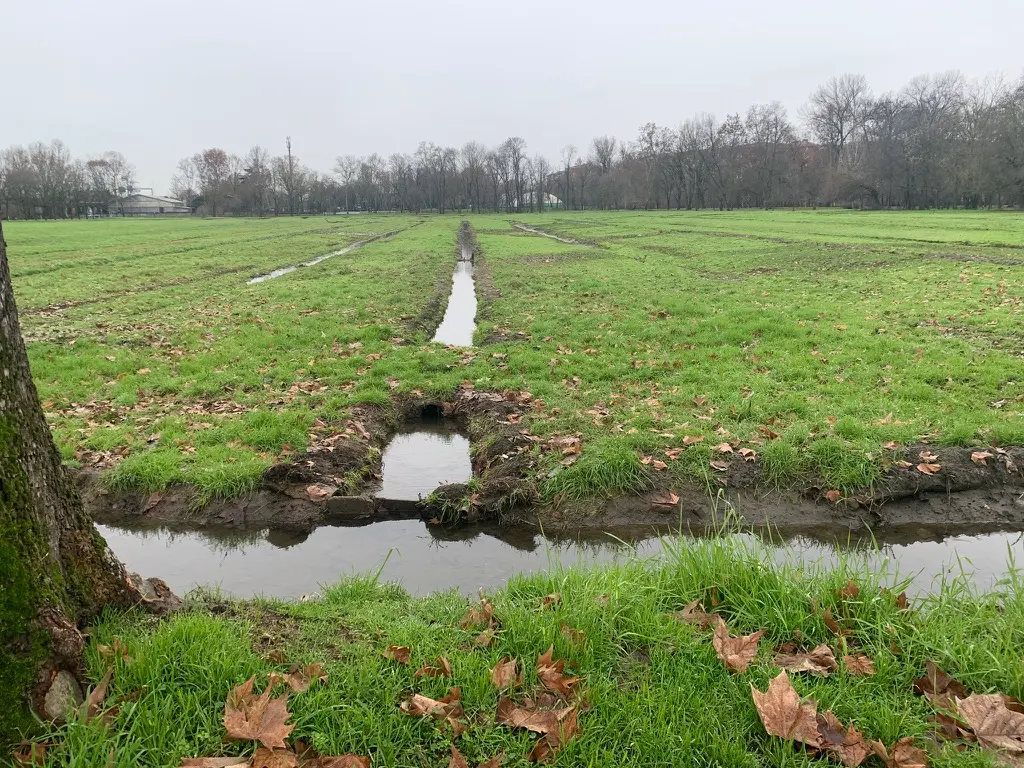
2021-2023
The project aimed to create new jobs for fragile categories through teaching traditional agricultural practices and recovering the water meadows; it took place in one of the urban parks of the Milan green belt, Lambro Park. The project was funded by the Cariplo foundation engaged in cultural social and environmental benefit actions for the Lombard territory as part of the Cultivating Value 2020 program.
Within the Lambro Park, Cascina Biblioteca social cooperative is engaged in helping and employing people with fragilities in the maintenance of green areas and manages 38 ha of agricultural land, 31 ha underutilized: one part is uncultivated, another is cultivated with grass and only 8 ha are cultivated with cereals using the conventional method, resulting in a high environmental impact and reduced profitability in relation to management costs. Within the Lambro Park, two historic water meadows (marcita in Italian) fed by the Lambro river and its derivates (such as the Molinara Canal) are still present: they allowed the regulation of the Lambro floods, the purification of the waters and a consistent production of forage, greater than the normal meadows. They are a precious testimony of an ancient water regulation technique, expression of the agronomic genius of the Milanese territory and a protected by the South Agricultural Park and the Ticino Park. During the project they have been restored, the channels have been remodeled by hand and mechanically, new wooden planks were made to close the joints and new small concrete joints for the waterers.
People with intellectual and/or mental disabilities and migrants has been included in a real path so to be able to acquire both hard and soft skills (relationship between peers, between worker and employer, empathy, team) and practice the job in a protected context in order to effectively check one’s skills and competences and improve them.
The local community has been trained on site to landscape caring during open days in order to increase sensitivity and knowledge regarding the values of traditional agricultural work and their benefit in ecological and landscape terms. To broaden the range of action, considering that it is important to act on the new generations, three local schools (primary, secondary and high school) has been involved to transmit the agro-environmental values and make known the history and agricultural nature of Milan. These interventions are fundamental for the development of a community attentive and increasingly aware of its ecological footprint.
